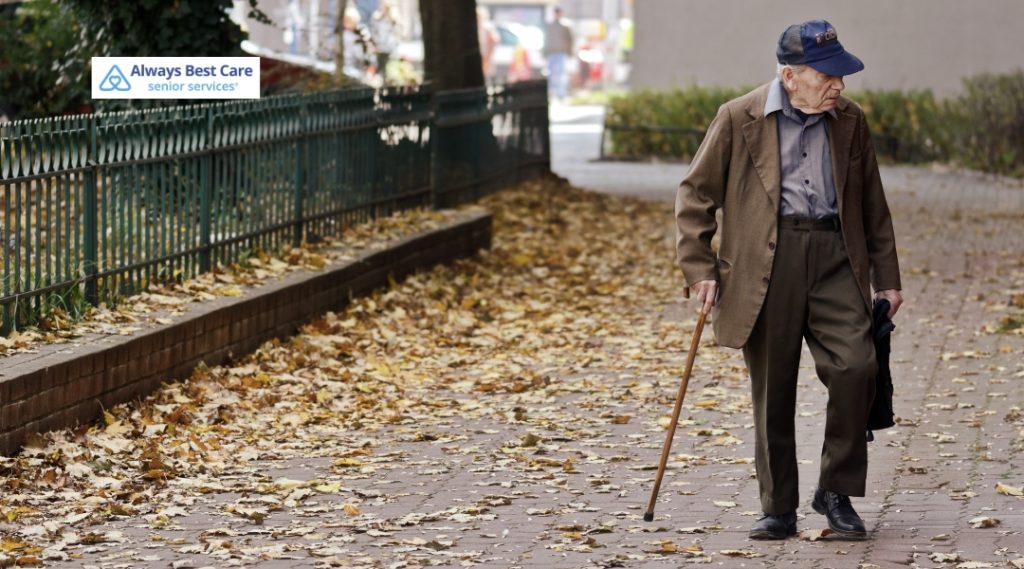Homeward Bound: Navigating Dementia and Ensuring Senior Safety in Spring, TX

Caring for a loved one with dementia is no walk in the park, especially when wandering enters the scene. It’s heartbreaking (and sometimes downright scary) to realize someone you care about might slip out the door without warning or purpose.
At Always Best Care of Spring, we get it: peace of mind feels just out of reach when safety becomes a daily worry.
We’re shining a light on why folks with dementia wander off and what we can do together as families and as a community to keep our seniors safe right here in Spring.
What you will learn:
- The common reasons why seniors with dementia wander and the early signs to watch for.
- Practical, easy-to-implement steps to create a safer home environment and reduce wandering risks.
- How predictable routines and calming surroundings help keep loved ones grounded and secure.
- When to consider memory care options and how specialized support can enhance safety and quality of life in Spring, TX.
Table of Contents
What Makes Wandering So Common with Dementia?
Ever watched someone you love suddenly act like they’re late for work, even though they retired years ago? That’s not just forgetfulness; it’s often dementia-driven confusion. Wandering isn’t simply getting lost; it’s complex behavior sparked by all sorts of feelings:
- Searching for something or someone familiar.
- Trying to stick to old routines (like heading out for work).
- Feeling agitated by noise or too many people.
- Restlessness from boredom.
- Disorientation about where or even when they are.

Top Triggers Behind Wandering
Here’s what often kicks off these unexpected journeys:
- Loss: They believe something valuable (a person or object) has gone missing.
- Routine: Old habits die hard—they’re off chasing yesterday’s schedule.
- Overstimulation: Too much hustle-bustle? It can be overwhelming.
- Boredom: Nothing going on inside equals feet itching to move outside.
Spotting the Red Flags Early
Don’t wait until there’s an emergency! Keep your radar up for telltale signs that your loved one might wander soon:
- Repeatedly trying doors or asking if it’s time “to go home.”
- Mentioning jobs or places from decades past.
- Seeming jumpy at gatherings, or looking lost even around family.
- Pacing back and forth near exits.
How We Can Reduce the Risk of Wandering
No need to reinvent the wheel. Sometimes, simple steps make all the difference! Here are tried-and-tested ways we help families create safer spaces:
Secure the Home Environment
You can’t always be everywhere at once, but technology’s got our backs:
- Door alarms that chime whenever someone heads out unexpectedly.
- Motion sensors placed near key exits.
- Locks installed higher up where they’re tough to reach unnoticed.
- GPS trackers tucked into shoes or bracelets.
Stick to a Predictable Routine
We’ve found that a daily structure works wonders:
- Set meal times to keep folks grounded.
- Scheduled walks provide exercise without risk.
When there aren’t gaps in their day, there isn’t room left for restlessness.

Tame Triggers Before They Start
Calm surroundings equal calmer minds. Try these simple tricks:
- Lower TV volumes during busy hours.
- Use soft lighting instead of harsh fluorescents.
Make Spaces Easy to Navigate
Clear labels help more than you’d think! Brightly colored arrows pointing toward bathrooms (or away from exits), large-font names on doors—all these elements reduce confusion indoors.
Team Up With Neighbors in Spring, TX
It takes a village! Let trusted neighbors know what’s happening so they’re ready if your loved one appears outside alone. And keep recent photos handy; you’ll never regret being prepared.
Is Memory Care Right for Your Family?
Sometimes, no matter how hard we try at home, it just isn’t enough anymore. That doesn’t mean giving up hope; rather, it means exploring memory care communities designed specifically for those living with dementia. These secure environments offer round-the-clock supervision plus therapeutic activities tailored precisely so everyone gets the attention and dignity they deserve:
Highlights include:
- Locked entryways/exits prevent unsafe departures.
- Friendly staff trained specially in cognitive support.
- Engaging programs proven to boost mood & spark memories.
- Personalized plans are adjusted as needs change.

Frequently Asked Questions About Dementia Wandering
Q: What should I do first if my loved one goes missing?
A: Call local authorities immediately. Don’t wait, thinking they’ll return quickly, and notify neighbors who may spot them nearby.
Q: Can technology really prevent wandering accidents?
A: While gadgets like GPS trackers & door alarms aren’t foolproof, they offer huge reassurance during those stressful moments.
Q: How do I decide between staying home vs moving into memory care?
A: If daily life feels like an endless series of close calls despite best efforts, that’s usually nature’s way of saying extra support could make everyone safer and happier.
You’re Not Alone on This Journey
Dementia brings new challenges every season, but none bigger than keeping seniors safe while letting them feel respected and valued each day. At Always Best Care of Spring, we stand beside local families, providing hands-on guidance, whether you’re managing things solo or considering professional memory care in the future.
Contact Always Best Care of Spring at (832) 585-1941 to learn more and schedule your free consultation.





